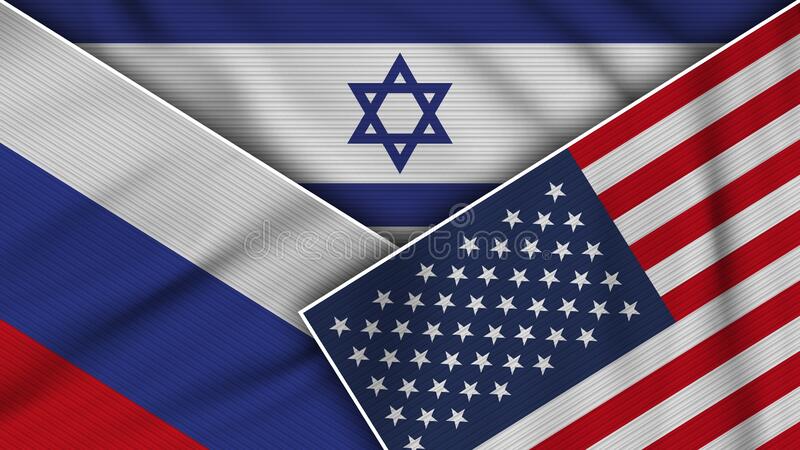Prof. Sam Lehman-Wilzig – Israel’s Superpower Tightrope: The Next Round Will be More Difficult
Israel seems to have managed to squirm out of a very tight situation involving two of its friendly countries at loggerheads: the U.S. and Russia. Unfortunately, this is only the warmup. The next round will be much harder: Israel between China and America.
First, the latest successful squirm. The U.S. is Israel’s biggest ally and closest friend. Thus, in principle it should have immediately supported the American anti-Russian coalition without thinking twice. Except that geostrategy isn’t that simple. With Iran trying to gain a major foothold in Syria to attack Israel, and Russia in Syria as well to prop up the Assad regime, Israel has had to “coordinate” with the Russians its anti-Iranian attacks in Syrian territory – among other things, to ensure that Israel doesn’t kill any Russian soldiers in proximity. As the Iranian threat is almost existential for Israel, keeping Russia in its good graces is imperative.
So Israel publicly supported the Ukrainian people and the U.S. (without explicitly mentioning Russia). Then it recently voted in the U.N. General assembly to censure Russia, but not with Israel’s U.N. Ambassador Gilad Erdan in attendance (his second-in-command did the deed). This tightrope walk seems to have been successful as both superpowers enabled PM Bennett to go to the Kremlin to try to resolve the impasse between Russia and the Ukraine. One could say that Israel made the very best out of an impossible political situation. However, it won’t be so “easy” next time.
The background: the real geopolitical, superpower confrontation in the first half of the 21st century has been – and will continue to be – between the U.S. and China. This is the real new Cold War, playing out on several fronts: economic, political, and territorial hegemony. Economically, China is a fast-rising power, challenging U.S. supremacy in many “future” sectors: artificial intelligence, surveillance technologies, genetic engineering and more. Politically, the Chinese Communists are trying to show the world that the best road to economic prosperity and social order is through “enlightened autocracy” compared to the West’s “anarchic democracy”. Territorially, Chinese wishes to (at the very least) rule all of the Far East from afar, and “return” Taiwan to China.
The West has recently begun to take this multi-pronged threat seriously, producing China-limiting policies in all three of these areas: raising tariffs against Chinese industries that play unfairly, and stopping highly sensitive technologies to be sold to the Chinese; highlighting the more nefarious aspects of Chinese politics (huge corruption and especially the treatment of the Uighurs); and strengthening Taiwan’s military while forging alliances with other East Asian countries.
So where does Israel fit into all this? Over the past twenty years, overall Chinese investments in Israel were close to $20 billion; most in the highly sensitive infrastructure sector but also through purchasing outright classic Israeli companies such as Tnuva (dairy), Ahava (cosmetics), and Bagir (textiles). Moreover, in the past decade China has entered many high-profile (and financially huge projects) with Israel. For instance, Chinese companies have won tenders to construct and operate a private port terminal in Ashdod, along with the right to operate another new port in Haifa for the next two and a half decades. They are also building a central part of Tel Aviv’s new light rail system, while bidding to later build additional lines. And the official figures don’t include another element: numerous Chinese workers in Israel’s building industry, doing work that Israelis tend to shun and for security reasons not that many Palestinians are allowed to do within Israel’s borders.
Given this emerging Second Cold War, it is not surprising to find U.S. administrations starting to pressure Israel to reconsider its commercial connections with China. This became public in 2020 when during visits to Israel, US Secretary of State Mike Pompeo warned about getting too involved with China. But Israel obviously had gotten the message even before then; a year earlier it had already established a regulatory structure to oversee foreign investments.
For Israel, China also has some geo-political importance, given its increasing economic relationship with Iran. Moreover, China never had issues of anti-Semitism (if at all, the Chinese are mildly philo-semitic, appreciating Jewish and Israeli accomplishments). In short, this is a hugely important, rising superpower that Israel is trying its best to keep friendly.
The whole world hopes China will not go the way of Russian foreign adventurism by invading Taiwan – but if it does, Israel will be in a very difficult position. And even if such an invasion doesn’t occur, the growing enmity between the U.S. and China will make it increasingly difficult for Israel to continue its highwire act with both of them. Like many other countries, Israel will suffer from the fallout whenever and over whatever it happens. Slowly cutting back on Chinese investment in Israel is the only long-term solution.









